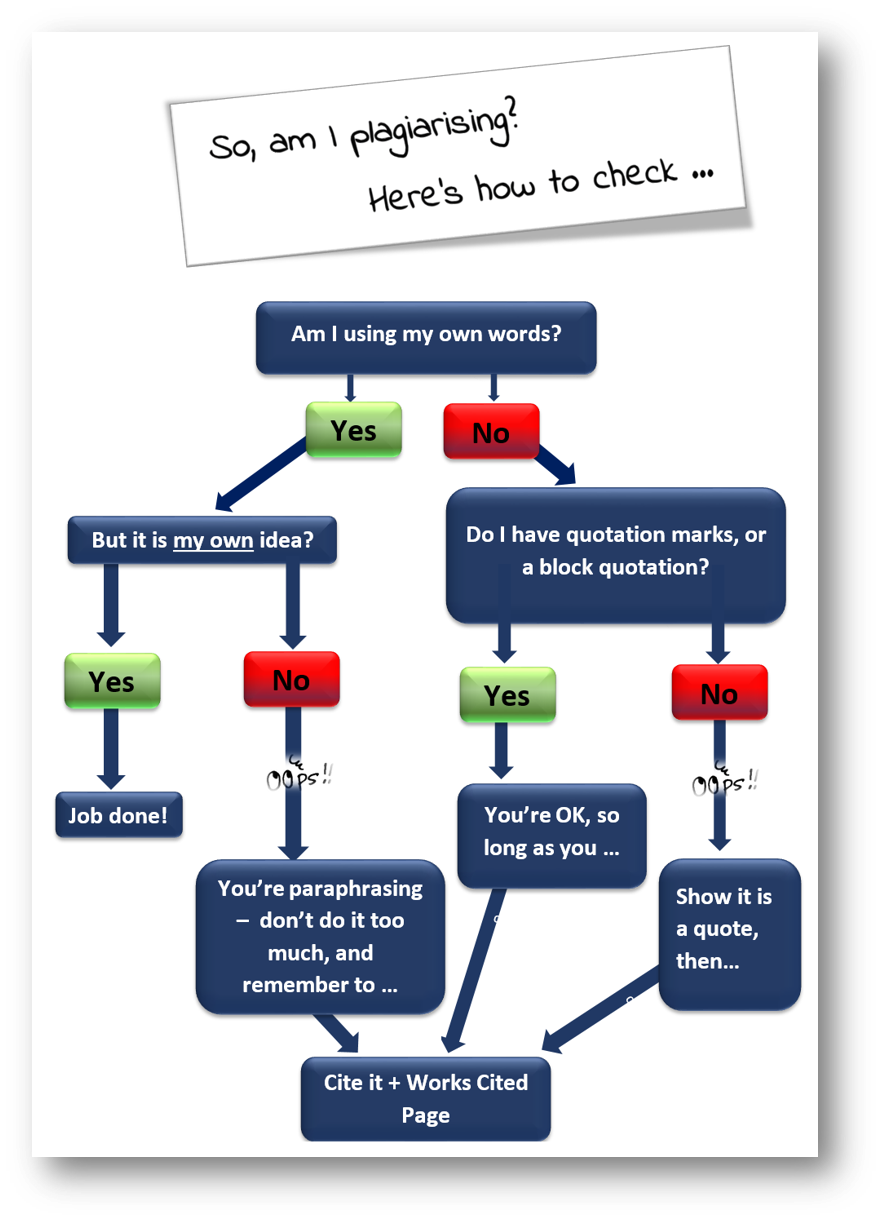Project Description
Why does it matter?
It’s a question of honesty and trust. People around you need to know that your work is conducted with integrity and that your findings are genuine.
Working ethically shows respect for yourself and for others. It is vital for research to be of the highest standard – others may be building on it in the future and need to know they can rely on it for their research in turn.
By simply copying information you are short-changing yourself – it means you are not really learning, thinking creatively or critically evaluating material. It is also difficult to see where your own strengths and weaknesses lie. After all, you’ll be on your own in the exam room, and you’ll need to rely on your own knowledge and understanding.
When it comes to assessments, it’s also a question of fairness and respect – if you plagiarise to get a good grade, you are essentially stealing your grade while others are working for theirs. It is important to have respect for them, and also self-respect and a sense of achievement in grades you have earned honestly.
It is important for academic qualifications such as the Diploma or your degree to have value, and that depends on students studying and working with integrity. No-one wants to live in a building designed by an engineer who faked their qualifications, nor would we want a doctor who bought a research paper online instead of conducting proper research.
So, both for your own sake and the sake of the wider academic community, work fairly and honestly and credit the work and ideas of those who have gone before.
What is Turnitin?
Turnitin is an internet-based service which uses its database to check your work to identify plagiarism and uncited material.
It can also be a really helpful tool to help you develop your referencing and citation skills so you can identify potential problems before you hand in your final work.
You can find a student guide to the service here:https://guides.turnitin.com/01_Manuals_and_Guides/Student_Guides/01_Quick_Start_Guide
The Feedback Studio is full of information about how to submit your assignments and how to interpret the similarity reports generated on Turnitin. You can find more information here: https://guides.turnitin.com/01_Manuals_and_Guides/Student_Guides/Feedback_Studio
Our academic honesty policy is presently undergoing its regular review process; you can find the 2017 version here:
https://www.skagerak.org/uploaded/Policies/SIS_Academic_Honesty_policy_FINAL_2017.pdf
In general terms, ‘common knowledge’ is information which an average, well-educated person would accept as reliable without needing to check it.
This would be:
- Facts or information most people know.
- Knowledge shared in a specific field e.g. Boyle’s Law
- Information shared by a cultural group such as famous national heroes
- Shared phrases and idioms
What is common knowledge in one area – e.g. medical, may not be in another – the context is important. If you give a presentation at a conference for doctors, you can safely assume a basic knowledge of medicine which would not apply to the general population.
Ask yourself who the reader or audience will be and what they will already know. Will they need to know where you found your information?





